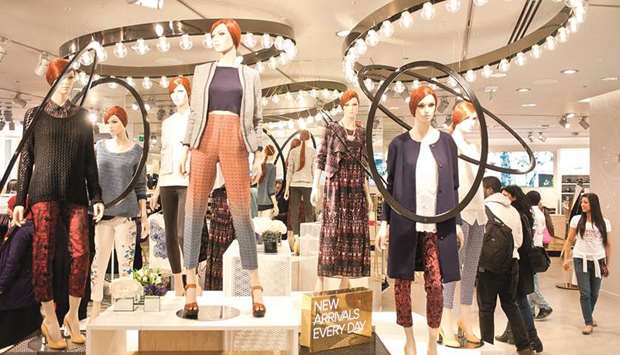Growing up shopping clothes used to be an occasional event for me – when either the seasons changed or when we outgrew the clothes we had or when it were festive occasions like Eid or birthdays. As the youngest sibling in the family, I used to get a lot of hand-me-down clothing from my older sister which were then passed on to my younger cousins, when I used to outgrew them. This was the norm in many households back then and clothes were repurposed and reused again and again.
However, in last two decades, things have changed. Clothes have become cheaper; fashion trends are changing rapidly and shopping has taken a form of entertainment, with global chains dominating the high street fashion. Even online shopping is like that cherry on the top for shopping savvy people that gets them accessible to everything, just a click away. This has created a trend of fast fashion.
But what is fast fashion? And how does it impact people and the planet?
‘Fast fashion can be defined as cheap, trendy clothing, that sample ideas from the catwalk or celebrity culture and turns them into affordable garments at a fast speed and the latest collection from a designer’s collection are soon be seen on the racks of a high street fashion brand”
We all love a bargain outfit that is trendy, affordable and hence we buy fast and often wear it at times of two and then throw them out – That’s fast fashion. Our planet is suffocating because of the increasing desire for fast fashion. Let see explain how…
In order to produce trendy clothes in a short amount of amount and at low cost, lots of compromises are made that we consumers are unaware of and are oblivious to. But it’s time to stop and think about what we are doing to the planet with our increased desire of shopping more and more and wearing a new outfit at every event.
Lots of synthetic materials are used to produce these garments which not only implies the use of a lot of chemicals in the production of these fabrics but also means that trillions of synthetic microfibers (that comes off when clothes are washed), go back into the ocean and pollute the environment.
Since the time frame for the garment production to the racks of the store is so short, their quality is compromised and hence doesn’t last very long, creating waste. Also because of the need that we have developed for fast fashion, we end up buying the latest trends and not wearing the clothes we bought last season. This causes a lot of wastage and billions of garments ending up in landfills every year.
By producing billions of clothes every year, the fast fashion industry is also releasing waste and chemicals into our world, polluting and driving species to the brink of extinction
And last but not least, there is also a human cost involved in this Fast fashion Multi-Billion Dollar industry. These fast fashion global high street brands get their garments manufactured in countries like Vietnam, Bangladesh, China, Taiwan, Pakistan, and others, where the labour laws are either not in place or are not followed strictly.
The garment workers have been found to work in dangerous environments, for low wages, and without basic human rights. So next time you see a high street brand shirt or jeans made in your home country, it’s not because you have excellent raw material but it’s because unfortunately, your labourers can be exploited easily!
Facts and Figures about Fast Fashion Industry
1- Each year, over 100 Billion items of clothing are produced globally using 1000s of different chemicals yet 3 out of 5 items end up in landfills within 12 months!
2- The fast fashion industry emits 1.2 billion tons of CO2 equivalents per year.
3- The industry is responsible for producing 20% of global wastewater.
4- It produces 97% of our clothes overseas in countries where labour and environmental laws are nonexistent.
The choice eventually lies with us. Every time we invest in an item of clothing
1- We can consider every purchase (if we need it or just want it) and love our choices.
2- We can buy quality items that would last longer and hence consume less.
3- We can recycle and repurpose and swap clothing.
Together we can change our attitude towards fast fashion and choose sustainable fashion. As a small step in this direction in promoting sustainable fashion in Qatar and saving and protecting the environment, Roots Salon recently hosted an event ‘Fashion Swap’. The event was conceived and executed by Carolyn Collins, General Manager of Roots; Lia Bonfio, Founder of Just Wow Qatar; Pooja Adam, Fashion Stylist at Les Rebelle Squad; and Laura Brennan, Founder of Eco Souk Qatar.
These four women urged other women to clear up their closets and select items that can have a new life in someone else’s wardrobe. They were asked to drop their used clothes and accessories at Roots and in turn, would get a chance to swap them with other pieces to create new looks. With an overwhelming response from people, it was one helluva task itself to sort through and organise the clothing in order for the swap day.
The fast fashion industry is, unfortunately, one of the biggest contributors to climate change and pollution. Reusing, repurposing and upcycling pre-loved clothing is a small step towards a more sustainable lifestyle. Planet and wallet-friendly! Do think about the environment, next time you shop.

GLOBAL WARMING: The fast fashion industry emits 1.2 billion tons of CO2 equivalents per year.
